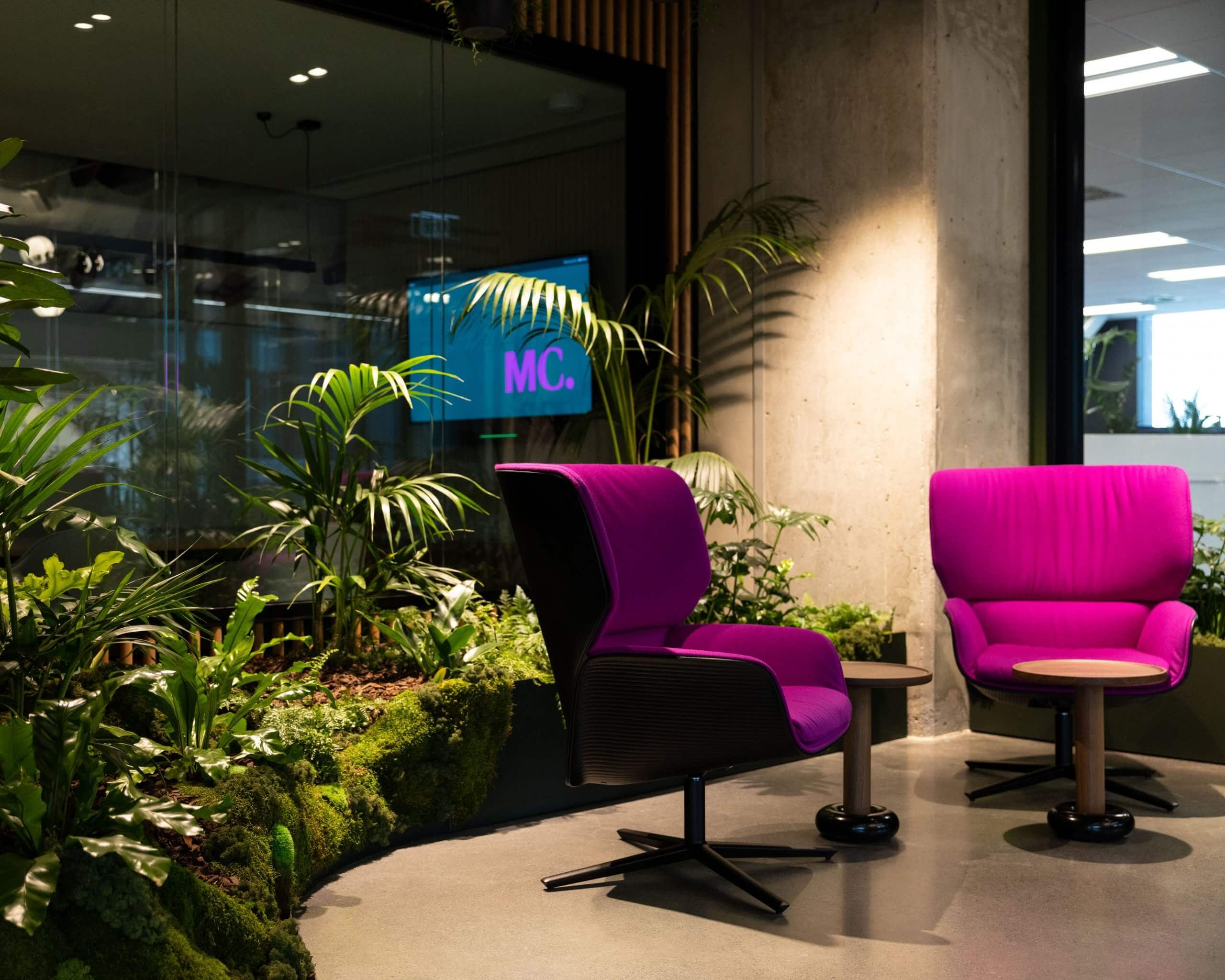Meredith Connell, Auckland | Designers: Jasmax | Photography: Jono Parker
We may not be able to predict the future forces that will shape the office of 2025 and beyond – just as we could not have forecast the seismic shifts of COVID-19 on the workspace.
We’ve been living through the greatest workplace disruption in generations. This disturbance is reshaping modern workspaces.
Harvard Business Review recently showed that more than 90% of US companies surveyed plan to adopt a hybrid working model for their knowledge workers, while high-profile businesses like Tesla are putting pressure on executives to return to the office.
‘Working from home’ will become ‘working from anywhere’
New viral variants may necessitate remote working again, while many workplaces are embracing the flexibility of a remote or hybrid model. People still want to work with people, to thrive off collective energy and get inspired. So while the office is still relevant, its value is changing – satisfying our need for social connection and collaboration, as the home office becomes a space to focus on deep work.
Flexibility is a must have for employees
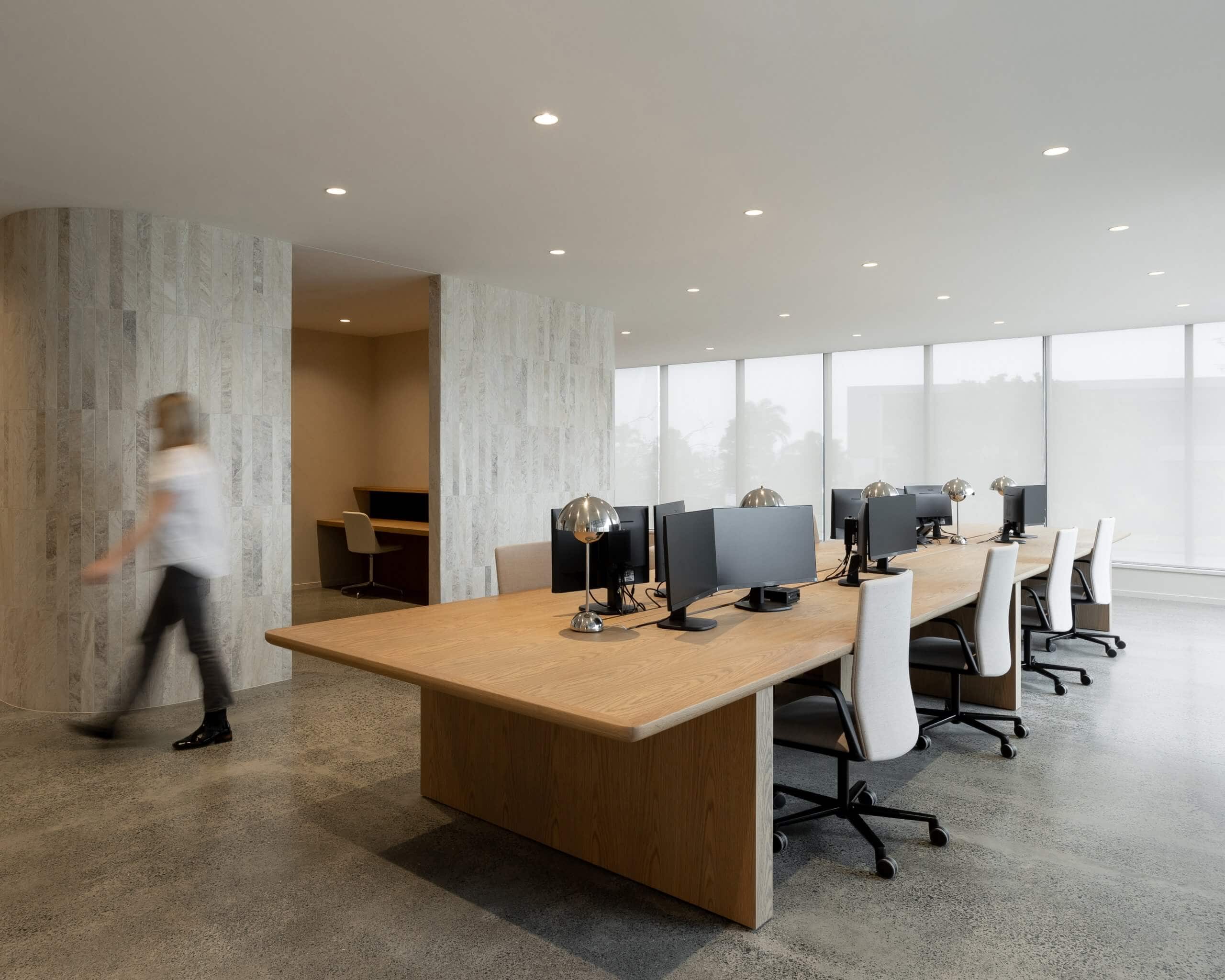
Active Components Workspace, Auckland | Designers: Pennant & Triumph | Photography: Jono Parker
Will we go back to business as usual and the Monday-Friday 9am-5pm work week? Or will we be loath to relinquish the flexibility the last two years have afforded us?
If we’re only coming into the office for face-to-face meetings, we risk damaging workplace cultures. Coming together to collaborate is even more important now, so contemporary offices are placing more emphasis on including design-led zones that facilitate creative conversations.
Workplaces are an attraction tool
To compete in the war for knowledge worker talent, some companies will shorten the work week rather than increase pay. This is likely to accelerate the growing trend of adopting 32-hour and flexible work weeks to attract high performing knowledge workers. Depending on how this will be structured, offices may become emptier and will need to flex to accommodate changing numbers of staff in-house.
Workplaces need to earn the commute
With hybrid and remote work as the norm, the geographic catchment of employment opportunities expands – employees will commute further if they don’t have to do it daily.
But hybrid and remote workers have weaker social connections with their co-workers, making it easier to quit. This will drive businesses to ensure their offices feel as comfortable and welcoming as their employees’ homes.
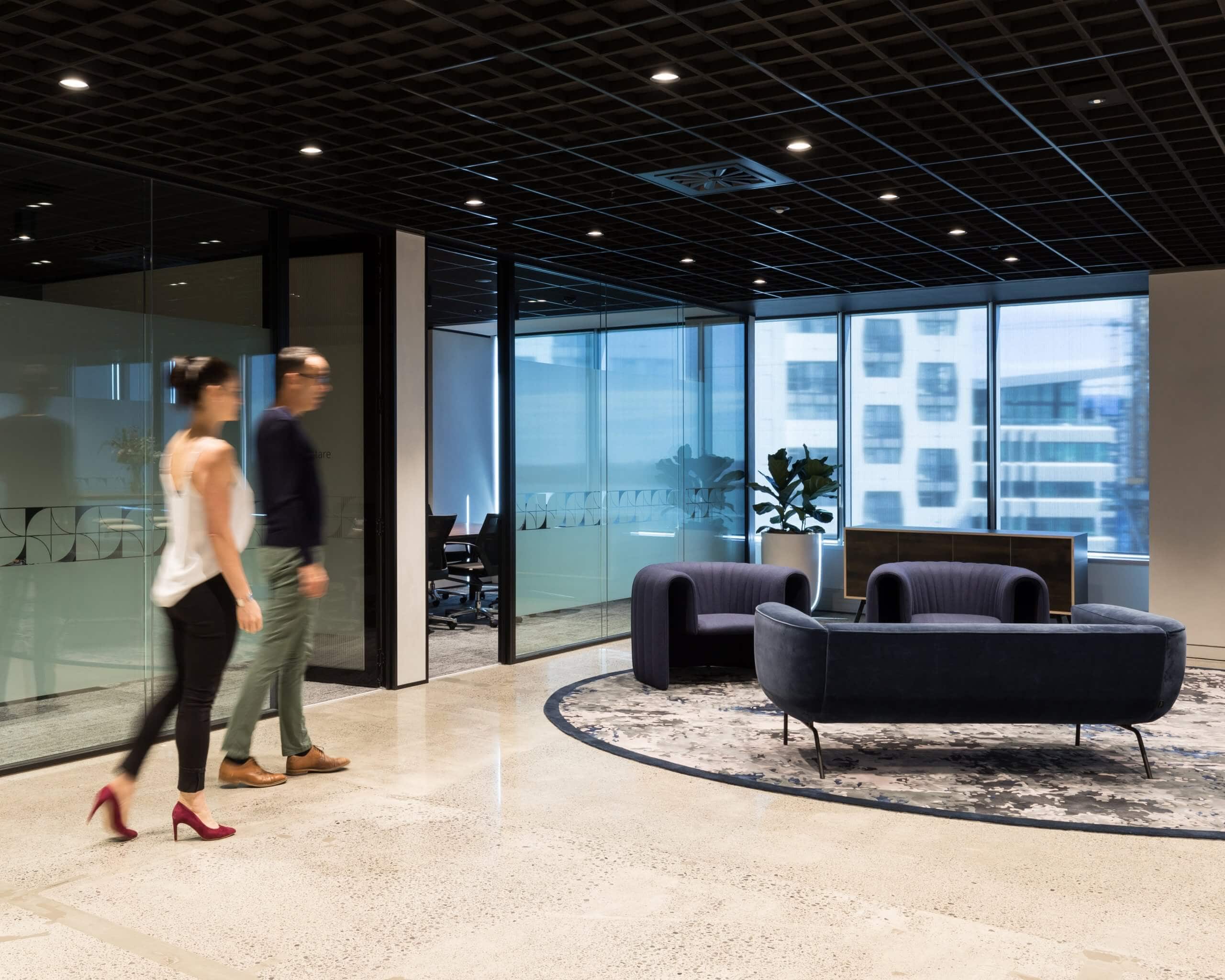
Tompkins Wake, Auckland | Designers: Stack | Photography: Mark Scowen
The pandemic has highlighted wellbeing
Post Covid, wellness has become a more important metric for companies to understand employees, and hope that the focus on wellbeing will translate to better performance and retention. The shift to working remotely has impacted employees physically. While some of us took up new activities over lockdowns, many of us became more sedentary. As ‘sitting is the new smoking’ some companies are rethinking the ways that they get their employees moving: providing more standing desks and meeting spaces, kitchens supplied with wholefoods rather than junk food, and spaces to meditate or exercise.
The workplace is about creating a sense of belonging and community. Some businesses may reduce the floorspace they occupy, while others will invest in creating a destination workplace, with more zones for collaborative ways of working and a softer, less formal look and feel. Whatever the case, we won’t be returning to business as usual – and workplaces that want to attract and retain talent will be adapting.
Making it work – overseas inspiration
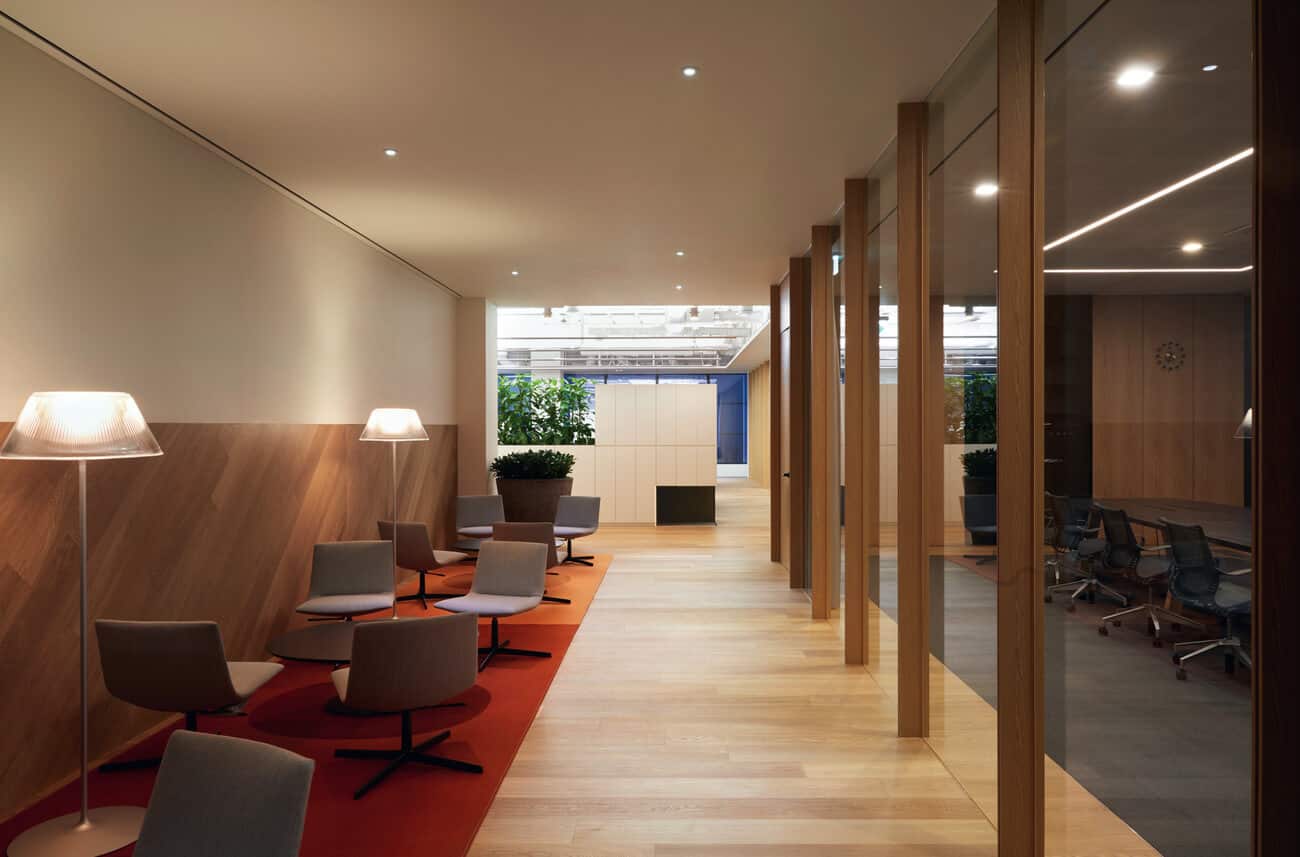
R-Project
Arper Catifa Lounge Chairs and Dizzie H-35 Tables cosy up together at R-Project in Seoul.
Photography: Park Woojin
R-Project
Arper Catifa 80 Sled Chair, Zinta Lounge and Pix 95 seats and table support informal conversations at R-Project in Seoul.
Photographer: Park Woojin
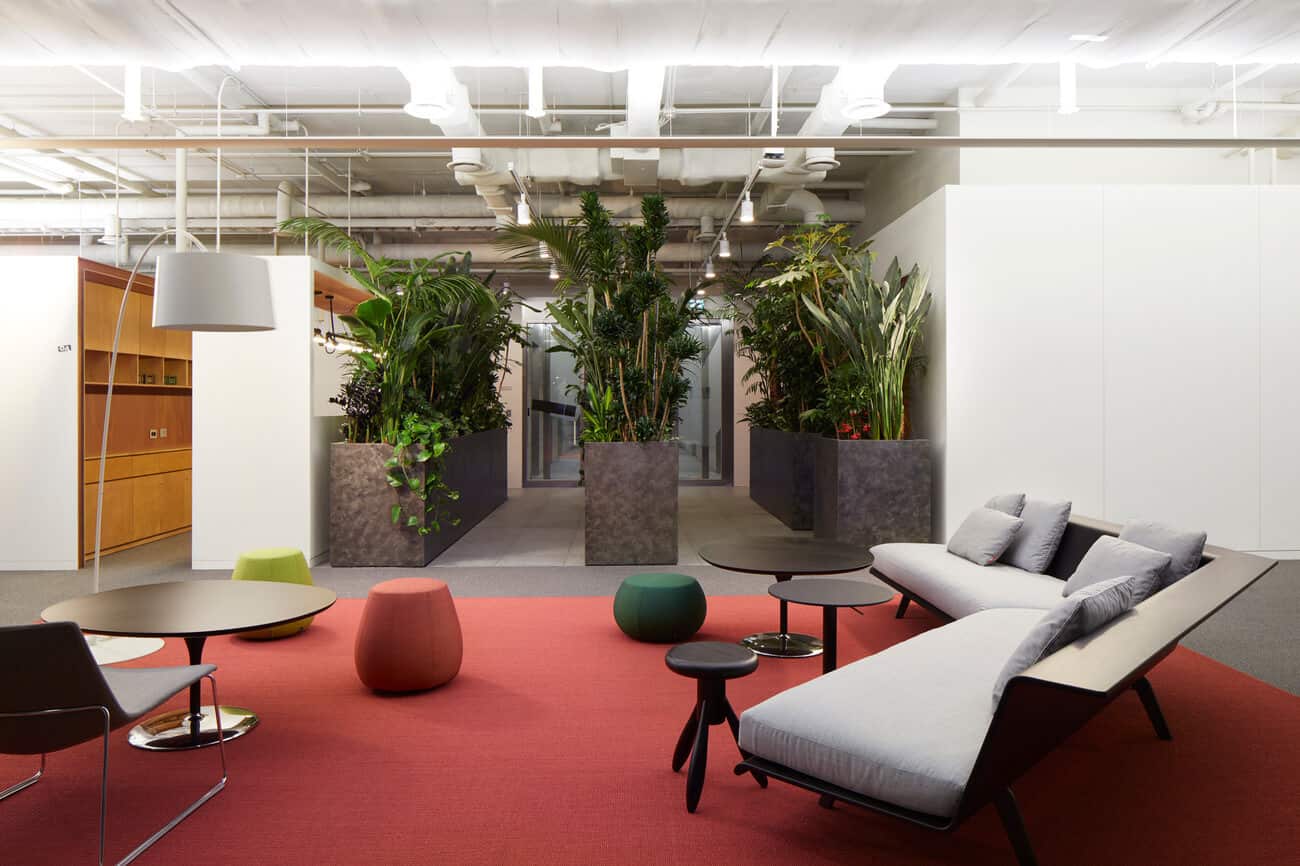
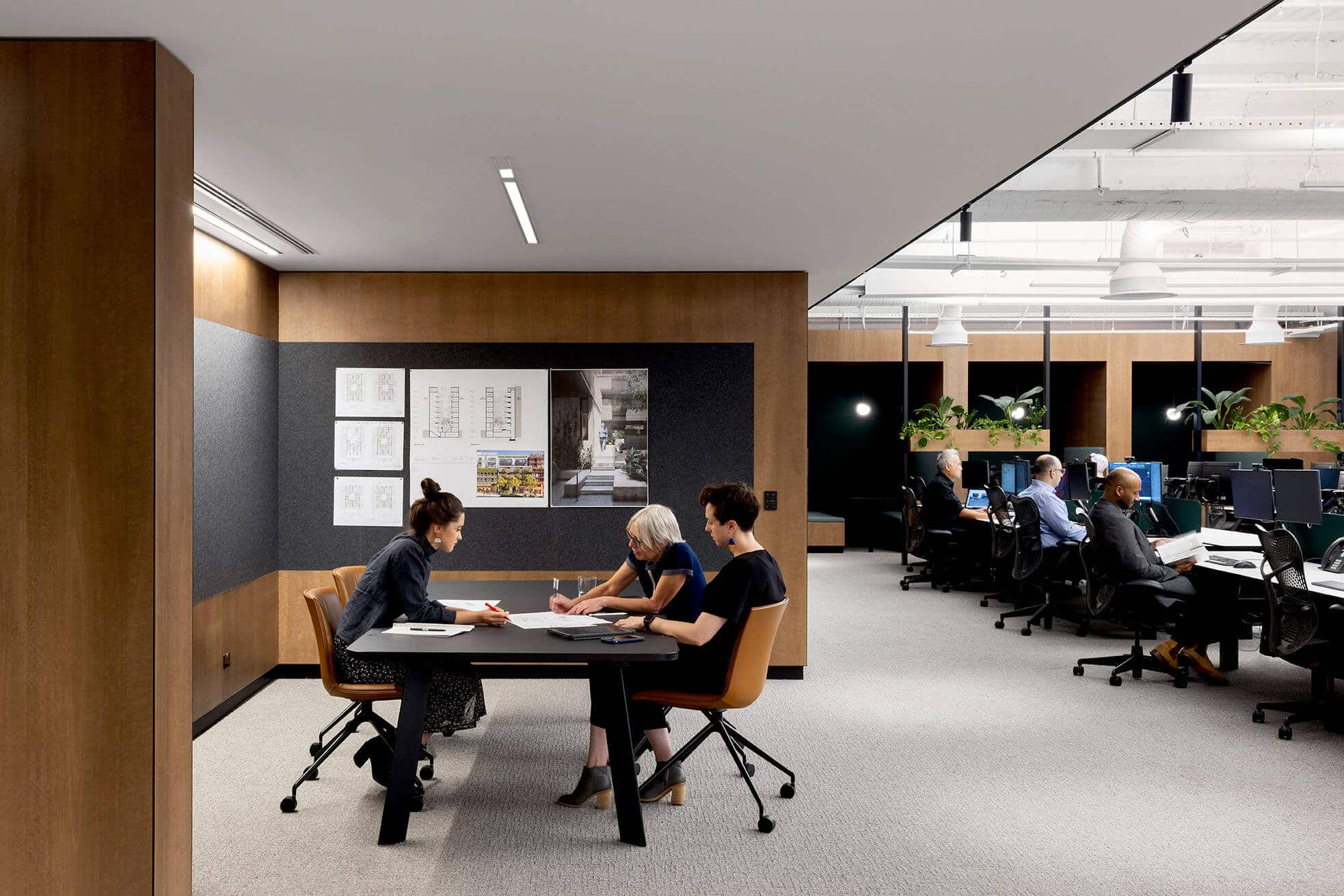
Hayball Melbourne Studio
Earth-toned Arper Catifa Up 4 Way chairs are also in effect at this Melbourne studio.
Designer: Hayball
Photographer: Dianna Snape
Bloomberg, Singapore
At Bloomberg in Singapore, Andreu World Capri Lounge chairs nestle into a peaceful retreat.
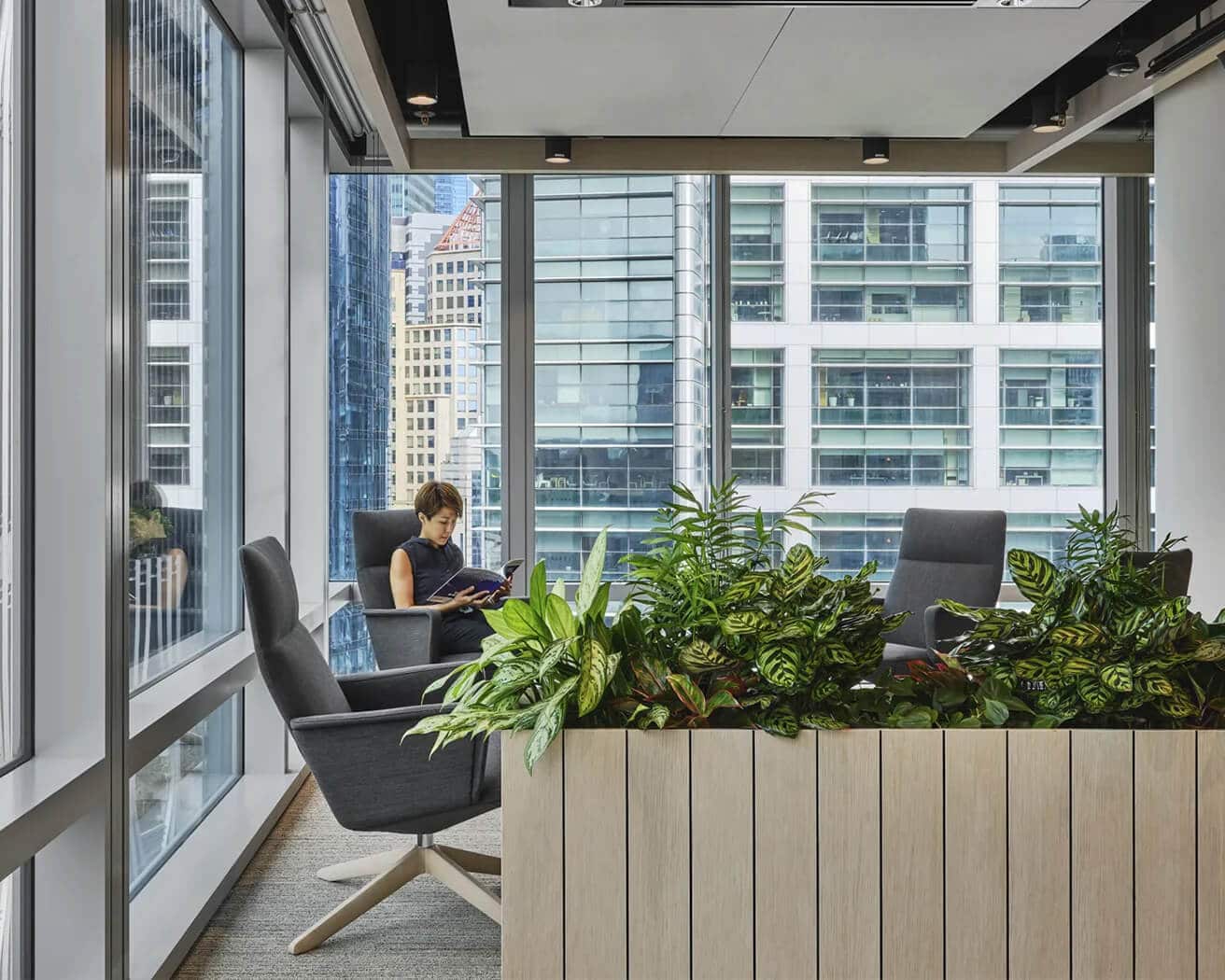
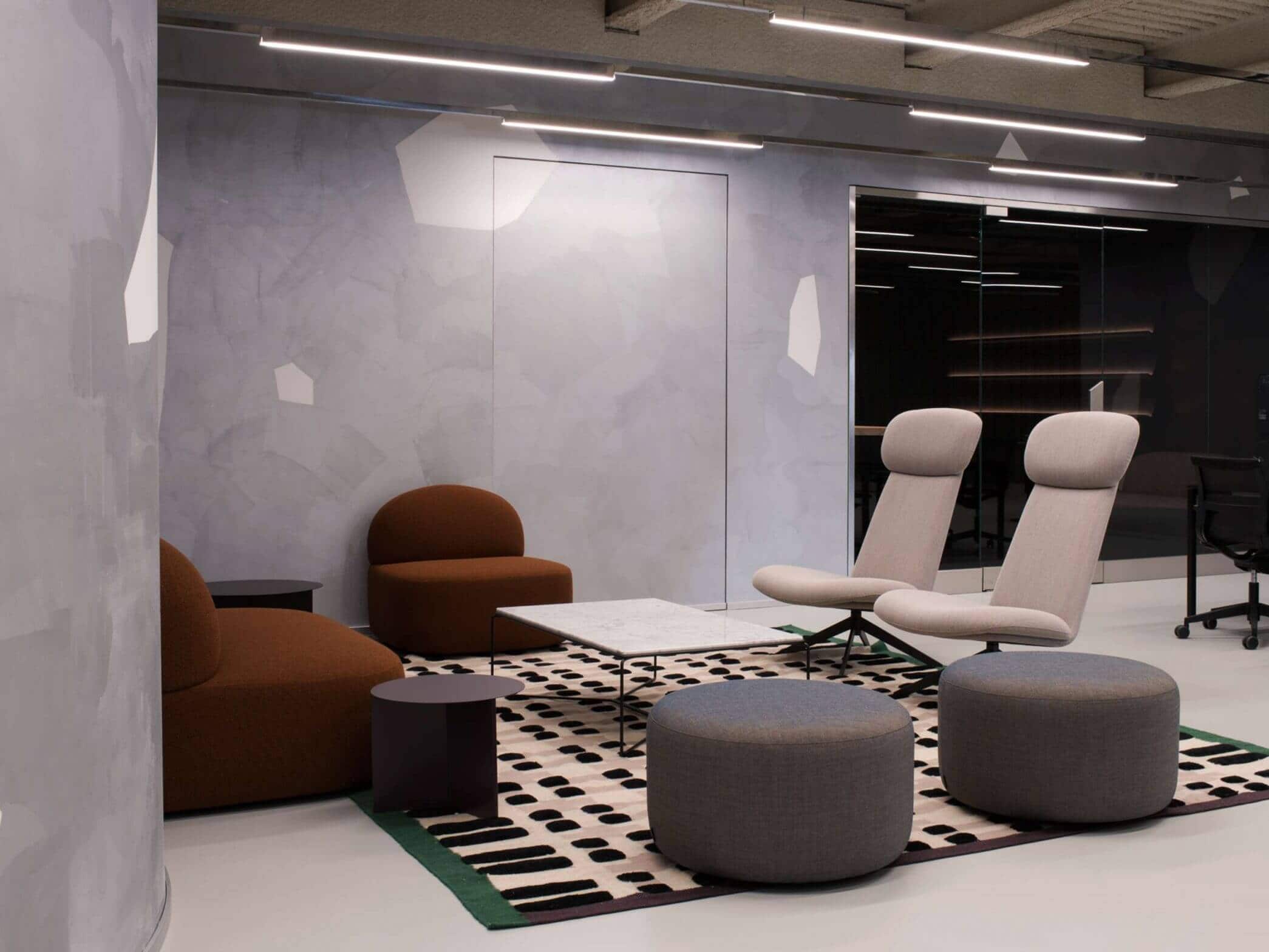
Star Hub, Udine, Italy
With Pinch, MyPlace and Guest, LaCividina mixes comfort, design and functionality, in Star Hub, Italy.
Interior Design: Visual Display
Photography: Rocco Taglialegne

